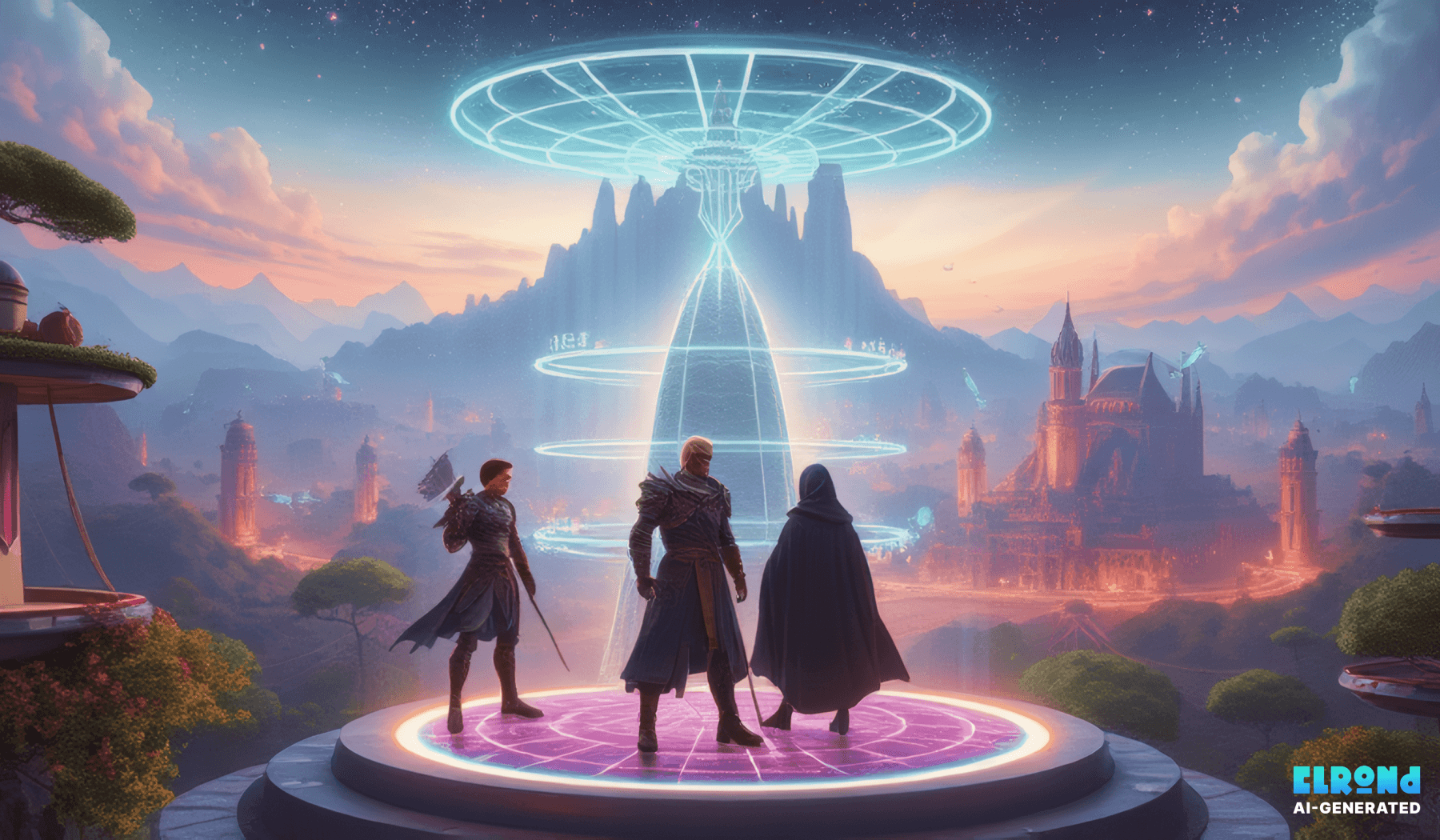A thought-provoking exploration of the alternate history genre and its endless possibilities.
Alternate history, as a genre, allows us to step into the shoes of 'what could have been.' It offers a rich canvas to explore different outcomes to pivotal events and milestones in our shared history. What if key moments had turned out differently? What if history’s course was altered by one small decision, a battle won or lost, or an empire that didn't fall? These thought experiments invite us to reimagine the world in ways that reveal how fragile our reality truly is.
In this article, we will explore some of the most intriguing 'what ifs' in history, diving into alternate scenarios that could have drastically changed the world as we know it. From the rise and fall of empires to the fate of nations, alternate history allows us to ponder the endless possibilities of human history.
1. What If the Roman Empire Never Fell?
The fall of the Roman Empire in 476 AD is often marked as the end of antiquity and the beginning of the Dark Ages. But what if the empire had managed to hold its ground? What if the Roman legions had repelled the Germanic tribes and restored order? Could the Roman Empire have evolved into a modern state?
Had the Romans maintained control over Europe, they would have brought with them their advanced legal systems, architectural innovations, and vast infrastructure. It’s possible that a unified Roman Empire would have fostered earlier industrialization or even spread the roots of democracy centuries before it appeared in the form of the United States. The continuation of Roman law and governance could have shaped the future of Europe and influenced the development of modern political systems.
2. What If the South Had Won the American Civil War?
One of the most captivating alternate history scenarios involves the outcome of the American Civil War. The Confederacy's victory would have meant the survival of slavery in the Southern states and the establishment of two separate nations in North America. How would the U.S. and the Confederacy have coexisted in this alternate reality?
The division of the United States could have led to a fragmented continent, with the South relying heavily on agricultural production and the North becoming an industrialized powerhouse. International relations would have shifted dramatically, with European powers possibly playing the South against the North in an effort to influence trade and politics. Civil rights in the Southern states would likely have been delayed by generations, and the cultural impact of a divided nation would resonate for centuries.
3. What If World War II Had Never Happened?
The global conflict of World War II fundamentally altered the world’s geopolitical landscape. But what if the war had been avoided? What if Adolf Hitler had never risen to power, or the Axis Powers had been contained before they could start their expansion? Would the Great Depression have continued longer, or would the world have entered into a different kind of conflict?
The absence of World War II could have led to a radically different world order. The Allies, without the pressing need to combat fascism, might have focused more on economic growth or internal political issues. The Cold War between the U.S. and the Soviet Union might never have occurred, and the world might have avoided the nuclear arms race. Technology and innovation, especially in the fields of aerospace, medicine, and computing, could have taken a different path as well, without the impetus provided by wartime needs.
4. What If the Mongol Empire Had Stayed United?
The Mongol Empire, at its peak, was the largest contiguous empire in history, stretching from the Pacific Ocean to Eastern Europe. Under the leadership of Genghis Khan and his successors, the empire had the potential to reshape the world. But after Genghis Khan’s death, the empire fractured into separate khanates, which eventually declined.
Had the Mongol Empire remained united, its influence could have spread even further, potentially including Africa, the Middle East, and the Americas. The Mongols were highly skilled in warfare and governance, uniting many different cultures under a single banner. Their control over the Silk Road allowed for the exchange of goods, ideas, and technologies between East and West. Had the Mongols kept their empire intact, it might have created an early globalized world with extensive trade and cultural exchange.
5. What If the Spanish Armada Had Defeated England?
In 1588, the Spanish Armada, a fleet of 130 ships, set sail to invade England, ending Queen Elizabeth I’s reign and reasserting Catholic control over the Protestant nation. However, the fleet was defeated, and England’s status as a rising naval power remained intact. But what if the Armada had succeeded in its mission?
If the Spanish had defeated England, it would have had dramatic consequences for Europe and the Americas. Catholicism would have remained dominant across the continent, and England’s influence in global exploration, particularly in the New World, might have been curtailed. The defeat of England could have also paved the way for Spain’s dominance in North America, changing the course of colonial history. The global Protestant Reformation might have never gained momentum, and the world’s religious and political landscape could have been vastly different.
6. What If the Aztecs Had Defeated the Spanish Conquistadors?
The Aztec Empire, at its height, was one of the most advanced civilizations in the Americas, with impressive cities, advanced agriculture, and a rich cultural history. But when Hernán Cortés arrived in 1519, the Spanish conquered the Aztecs, leading to the downfall of one of the most powerful empires in the world.
What if the Aztecs had managed to repel the Spanish invaders? In this alternate history, the Aztec Empire could have expanded its reach beyond Central America, influencing the development of the Americas. With its advanced knowledge of astronomy, engineering, and agriculture, the Aztecs could have played a pivotal role in the future of the Western Hemisphere, possibly avoiding European colonization altogether. The cultural and technological exchange between the Aztecs and other parts of the world might have resulted in a vastly different global development trajectory.
7. What If Napoleon Had Never Been Defeated?
Napoleon Bonaparte is one of history’s most iconic figures, rising from humble beginnings to become the Emperor of France and one of the most feared military leaders in Europe. His defeat at Waterloo in 1815 marked the end of his reign, but what if Napoleon had won? What if he had managed to maintain power and expand his empire?
Had Napoleon succeeded in maintaining his empire, the map of Europe would look drastically different today. The Napoleonic Code, which influenced legal systems in many countries, could have become the standard throughout Europe, altering the development of legal systems worldwide. The spread of revolutionary ideals—liberty, equality, fraternity—could have shaped the future of not just Europe, but the entire globe. A victorious Napoleon could have solidified France’s position as the dominant power in Europe, pushing forward his vision for a new order.
8. What If the Cold War Had Erupted into a Hot War?
The Cold War was a period of geopolitical tension between the Soviet Union and the United States, but it was characterized by indirect conflict, espionage, and the looming threat of nuclear war. What if the Cold War had escalated into a full-scale military conflict? What if the Cuban Missile Crisis had triggered World War III?
A full-scale Cold War conflict would have reshaped the world in unimaginable ways. The use of nuclear weapons could have caused massive devastation, not just to the countries directly involved, but to the entire planet. The political, economic, and social consequences would have been catastrophic, with the possibility of global instability for generations. In the aftermath, the world would likely have been divided into spheres of influence, with a new, more permanent global order emerging from the ashes of war.
Conclusion: The Infinite Possibilities of Alternate History
The beauty of alternate history lies in its endless possibilities. Each "what if" scenario offers us the opportunity to explore new worlds, question the forces that shape our lives, and challenge the historical narratives that have long been accepted as fact. From the rise of lost empires to the uncharted course of global conflicts, alternate history offers an infinite canvas on which we can paint a different world.
As we reflect on these possibilities, we are reminded that the future is not set in stone, and that history, in all its complexity and fragility, is something we can still shape and redefine.


